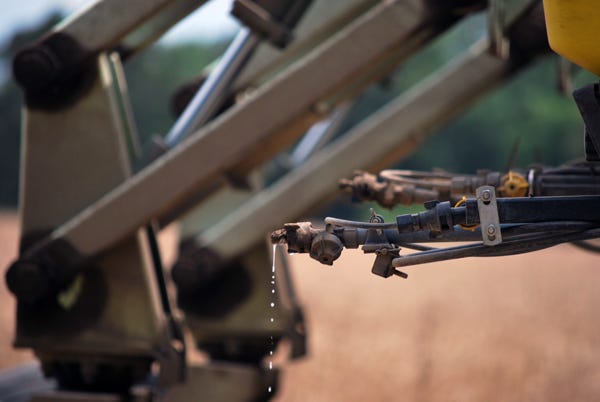August 10, 2015

Recent confirmation of PPO-resistant Palmer amaranth populations in Arkansas and Tennessee should scare the heck out of every Southeastern grower. Why you ask?
Just think about how many PPO herbicides are being used in the region. Valor, Reflex, Prefix, Cobra, Ultra Blazer are a few trade names of herbicides that have frequently rolled off the tongues of many growers, consultants, dealers and Extension folks. These herbicides have been applied to countless acres in Alabama, Florida, Georgia and South Carolina.
Before I go any further with this tirade, I want to make it very clear that I am not knocking these herbicides in any way, shape or form. The PPO herbicides that I mentioned above and others are outstanding products and have helped growers improve the management of Palmer amaranth in our region. It would have been extremely difficult to grow crops such as peanut or cotton without them.
At this point in time, I am not aware of any Palmer amaranth populations that have been “officially” confirmed to be resistant to the PPO herbicides in the Southeast. That is a good thing. However, I would bet money on the fact there are some PPO-resistant plants out there somewhere waiting to rear their ugly heads. It’s inevitable given the fact that so many PPO herbicides are being used today.
It is also extremely important to note that no new herbicide modes of action are in the immediate pipeline. Let me repeat that. No new herbicide modes of action are in the immediate pipeline.
Plan B options are limited. Unlike the past, the Agriculture Industry will not get us out of this jam.
The following are some tips with the goal of keeping the PPO herbicides viable for peanut and cotton production systems in the Southeast.
You May Also Like




